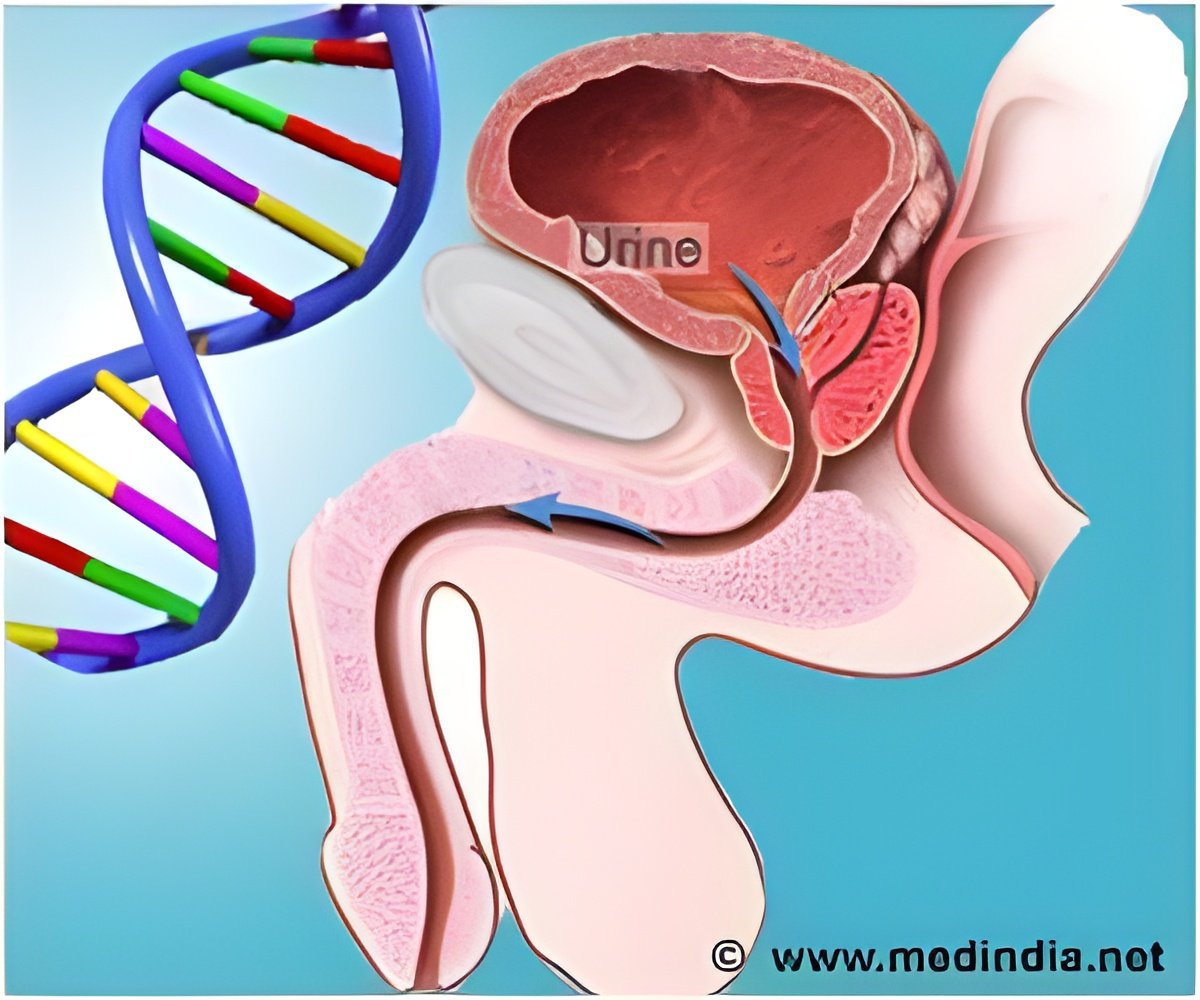Mutations in the gene BTNL2 increase the risk of developing prostate cancer, according to a team of researchers at Fred Hutchinson Cancer Research Center.

A complex disease with a strong genetic component
Prostate cancer is a complex disease and its causes include a strong genetic component. It is estimated that about 42 percent of prostate cancer cases are due to heredity, or genetic variations present at birth. Five to 10 percent of those prostate cancer cases are thought to result from rare inherited mutations.
The researchers studied multiple prostate cancer patients from families with a pattern of hereditary prostate cancer, or HPC. Germline DNA provided by patients with more aggressive or early onset disease was sequenced in an attempt to identify rare genetic mutations that predispose to prostate cancer. All the participants were men of European ancestry.
Several genes with candidate mutations were highlighted, but two coding variants in the butyrophilin-like 2, or BTNL2, gene were most strongly related to the development of prostate cancer. These missense mutations that change the genetic code were subsequently confirmed to be clearly associated with prostate cancer in an independent set of HPC families and in a case-control study population.
The team found that the two BTNL2 mutations associated with elevated prostate cancer risk are rare. In the 270 HPC families used for confirmation, about 1.5 percent of affected men carried one of the mutations but unaffected men carried none. In the population-based case-control study, 2 percent of prostate cancer cases and less than 1 percent of men without prostate cancer carried one of the variants.
Advertisement
In the case-control study, men who carried one of these variants had a significant 2.5- to 2.7-fold higher risk for developing prostate cancer compared to men who did not carry either mutation.
Advertisement
The researchers used a next-generation sequencing technology called whole-exome sequencing, which consists of sequencing all the coding regions, called exons, across the genome. The researchers used this technique to identify genetic variations within 91 men from 19 HPC families. Then, 130 candidate mutations that were observed more frequently in the men with prostate cancer were evaluated in an independent set of 270 HPC families for further confirmation.
Other candidate mutations found in this whole-exome sequencing study will be evaluated in a future investigation involving a larger group of HPC families and case-control populations to further assess their link to prostate cancer.
Source-Eurekalert

![Prostate Specific Antigen [PSA] & Prostate Cancer Diagnosis Prostate Specific Antigen [PSA] & Prostate Cancer Diagnosis](https://images.medindia.net/patientinfo/120_100/prostate-specific-antigen.jpg)












